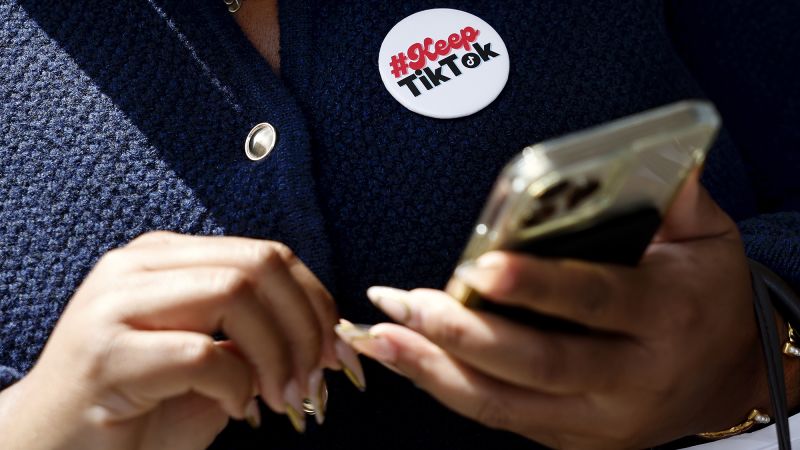
Trump says banning TikTok won’t make Americans safer from China. He may have a point
CNN
President Donald Trump on Wednesday batted down the national security concerns surrounding TikTok, saying, “Is it that important for China to be spying on young people? On young kids watching crazy videos?”
President Donald Trump on Wednesday batted down the national security concerns surrounding TikTok, saying, “Is it that important for China to be spying on young people? On young kids watching crazy videos?” It was a surprising comment coming from the guy who first tried to ban TikTok from the United States over worries that the Chinese government could use the app to gather intelligence on Americans. In his 2020 executive order that unsuccessfully tried to ban the app, Trump said TikTok’s data collection could allow China’s government “to track the locations of Federal employees and contractors, build dossiers of personal information for blackmail, and conduct corporate espionage.” Since Trump’s 2020 executive order, US lawmakers have largely agreed that it poses a risk. State and federal government agencies and the military have restricted staff from downloading the app on their work devices, beginning during Trump’s first term. And last year, Congress passed a law with bipartisan support requiring parent company ByteDance to sell TikTok to a non-Chinese owner or face a ban, which the Supreme Court upheld on national security grounds. But Trump’s comment about data security — while dramatically oversimplified — may have some merit. Some privacy and technology experts say simply transferring control of TikTok to a new owner won’t be a silver bullet to protect US users’ data from China, given that Beijing has plenty of other avenues for accessing information about Americans. Other social media platforms and websites collect similar data to TikTok — such as location data, search history and purchase history — and many other sites sell that data to data brokers, which make it available online for any willing buyer.













